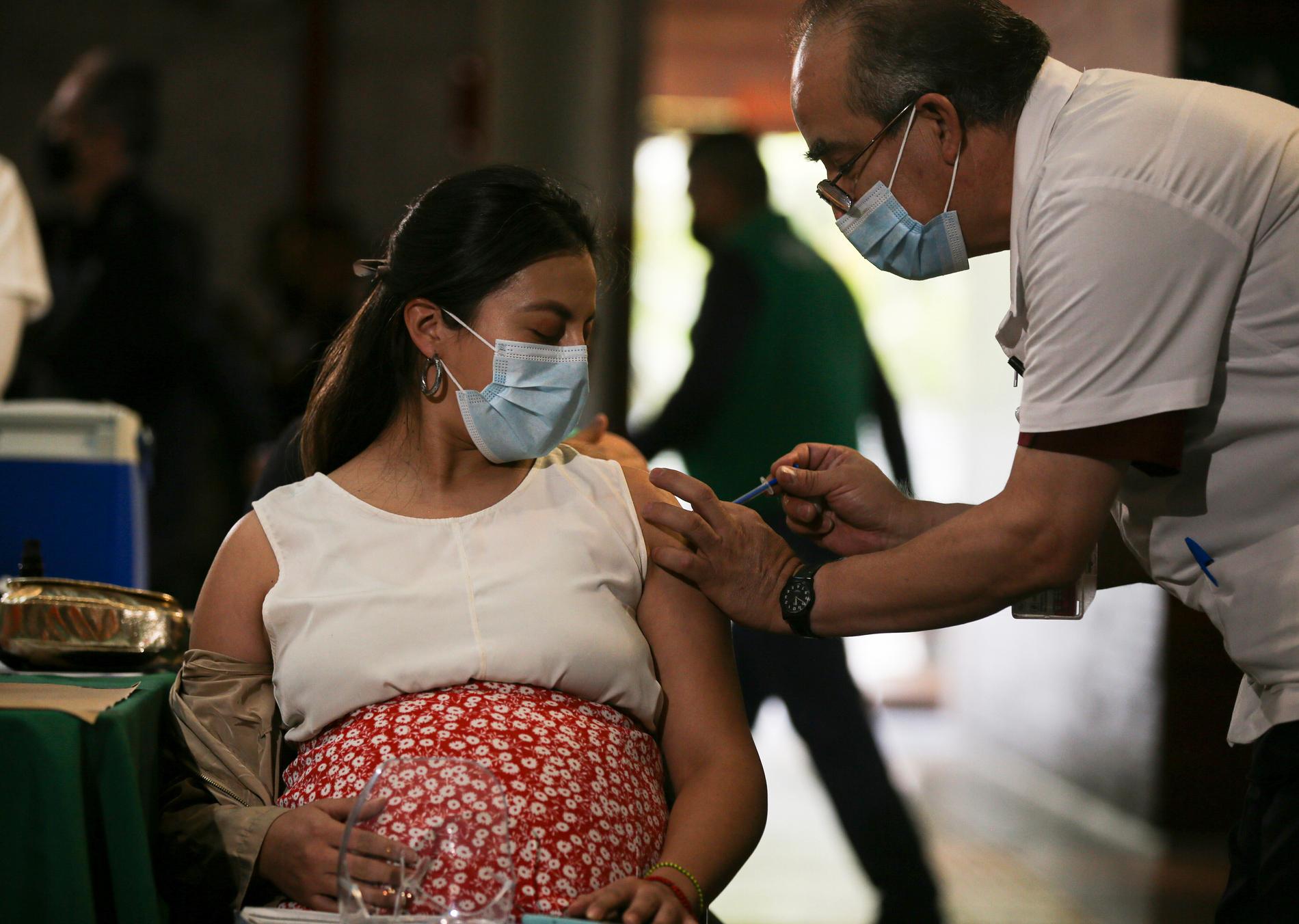
Pregnant women are classified as a risk group for covid-19. They can become seriously ill and also risk giving birth prematurely. But myths about how the vaccine affects the baby have led to hesitation among pregnant women.
doses) among pregnant women is, according to the Swedish Public Health Agency, a little over 60 percent, compared with over 83 percent in the general population (12 years and older).
Myths are spread on social media that the vaccine is transmitted to the child and can pose a danger. At the press conference with the Public Health Agency on Thursday, the issue was raised in particular.
you. It protects not only you from illness but also the baby, because there is a protective effect during a period after the birth, said Deputy Head of Department Sara Byfors.
Higher risk The Medical Products Agency also addressed the pregnant women directly at the press conference.
including one that is about believing that the vaccine is passed from mother to child. That’s not true. The vaccine causes the woman to make antibodies to sars-cov-2. The mother’s antibodies are then transferred to the baby, said unit manager Veronica Arthurson.
have a slightly higher risk of becoming seriously ill in covid-19. According to the National Board of Health and Welfare, an infection towards the end of pregnancy can also increase the risk of premature birth. Just a few days ago, the European Medicines Agency (EMA) issued an update on the state of research in this area. The EMA notes that there is growing evidence that “coR-19 mRNA vaccines do not cause complications during pregnancy, either for the pregnant woman or the baby”
Large study
In support of the conclusion, they refer, among other things, to a larger study of about 65,000 pregnant women. There was no increased risk of complications, miscarriages, premature births or negative consequences for the baby after vaccination.
Despite some uncertain data in the study, the EMA points to the clear conclusion.
In Sweden, more than 400 reports of suspected side effects for vaccines against covid-19 in pregnant women have been received. The vast majority are headaches, fever, fatigue, chills and pain in the arm, the same side effects as for non-pregnant women.
Published:
Published: January 22, 2022 at 09.02
The Medical Products Agency also addressed the pregnant women directly at the press conference.
including one that is about believing that the vaccine is passed from mother to child. That’s not true. The vaccine causes the woman to make antibodies to sars-cov-2. The mother’s antibodies are then transferred to the baby, said unit manager Veronica Arthurson.
have a slightly higher risk of becoming seriously ill in covid-19. According to the National Board of Health and Welfare, an infection towards the end of pregnancy can also increase the risk of premature birth. Just a few days ago, the European Medicines Agency (EMA) issued an update on the state of research in this area. The EMA notes that there is growing evidence that “coR-19 mRNA vaccines do not cause complications during pregnancy, either for the pregnant woman or the baby”
Large study
In support of the conclusion, they refer, among other things, to a larger study of about 65,000 pregnant women. There was no increased risk of complications, miscarriages, premature births or negative consequences for the baby after vaccination.
Despite some uncertain data in the study, the EMA points to the clear conclusion.
In Sweden, more than 400 reports of suspected side effects for vaccines against covid-19 in pregnant women have been received. The vast majority are headaches, fever, fatigue, chills and pain in the arm, the same side effects as for non-pregnant women.
Published:
Published: January 22, 2022 at 09.02
Note: This article has been indexed to our site. We do not claim legitimacy, ownership or copyright of any of the content above. To see the article at original source Click Here







